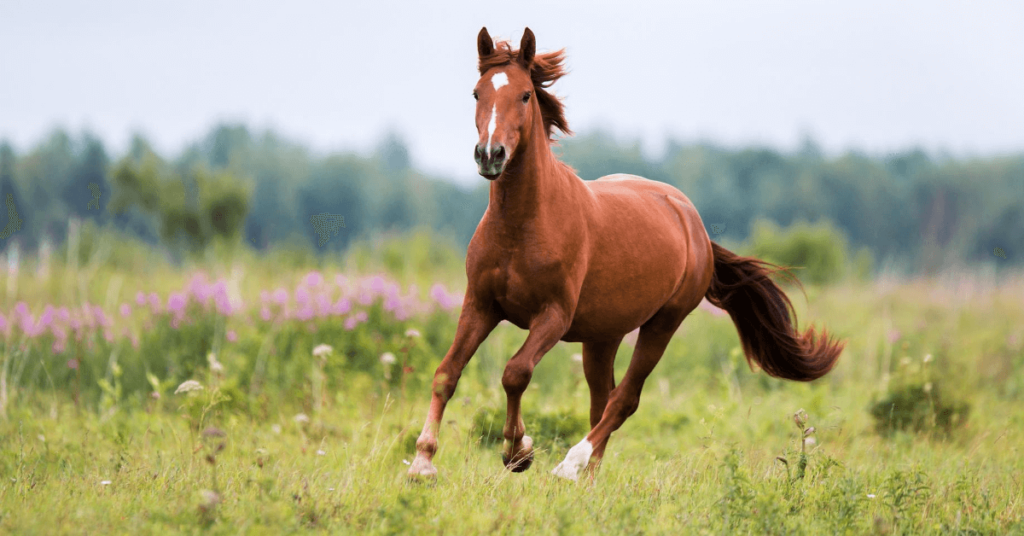Introduction
Fitness of the gut is a most important issue of your horse’s fitness for normal properly-being, overall performance, and stamina. Similar to humans, horses have their balanced digestive system used to gain assimilating nutrients, resisting sicknesses, and keeping power degrees. This manual will culminate in a entire immersion in not best the fee of equine gut fitness however a way to hold it and what movements to take while things pass bad with it.
What Exactly is Equine Gut Health and Why is it Critical?
The proper functioning of a horse’s digestive system-the belly, intestines, and sensitive stability of microorganisms-the microbiome-residing interior of the gut is equine intestine health. This machine breaks up meals into simple gadgets, absorbs nutrients, and, of route, removes wastes. A wholesome intestine is important to your horse’s regular health, as it no longer pleasant allows digestion however moreover influences the immune device, conduct, and electricity levels.
A horse’s digestive device is unique in evaluation to unique animals. For one, horses are non-ruminant herbivores, which means they don’t have multiple stomach cubicles like cows. Instead, they’ve got a huge cecum, which acts like a fermentation vat wherein microbes smash down fiber. The right balance of these intestine microbes plays a pivotal position within the horse’s fitness.
Why is gut health so vital?
- Performance: A horse with a healthful digestive device has greater strength and might carry out higher in schooling, competitions, and every day obligations.
- Behavior: Digestive pain, along aspect colic or ulcers, can result in behavioral changes. Horses can also turn out to be irritable, a whole lot less inclined to art work, or perhaps competitive.
- Immunity: About 60-70% of a horse’s immune device is housed inside the intestine. A healthful gut microbiome strengthens the immune gadget and helps combat off infections.
Common Digestive Issues in Horses: Symptoms and Causes
Horses are liable to various digestive problems, loads of which may be without delay associated with awful gut health. Recognizing the signs and signs and signs and statistics the reasons of these troubles is step one in prevention and manage.
Colic in Horses
Colic is one of the maximum not unusual and critical digestive troubles affecting horses. It refers to belly pain, that might variety from slight discomfort to extreme, life-threatening conditions. There are numerous types of colic, which encompass:
- Gas colic: Caused via using using a buildup of gasoline inside the intestines.
- Impaction colic: A blockage within the intestines because of undigested food or distant places fabric.
- Torsion or twist colic: A twisting of the intestines, which cuts off blood deliver.
Signs of colic:
- Restlessness and pawing at the ground
- Sweating
- Lying down and getting up over and over
- Bloating or distended stomach
How gut health pertains to colic:
- Imbalanced intestine plant life can boom the threat of colic. An lousy stability of bacteria can also have an effect on digestion, essential to gas buildup or impactions.
- Stress and food regimen modifications are frequently triggers for colic. Horses with poorly managed diets or sudden feed modifications are much more likely to enjoy digestive distress.
Gastric Ulcers
Gastric ulcers are commonplace in horses, especially the ones concerned in large training or great general average overall performance. The situation takes area at the same time as the belly lining is damaged via extra belly acid. Stress, immoderate-grain diets, and the dearth of roughage contribute to ulcer improvement.
Signs of gastric ulcers:
- Poor urge for food
- Weight loss
- Behavioral modifications like aggression or irritability
- Poor ordinary performance
How intestine health affects ulcers: A horse’s digestive fitness is straight away associated with its capability to shield in opposition to belly acid. Feeding normal, small meals with lots of fiber allows buffer belly acid and decrease the danger of ulceration.
Diarrhea and Other Digestive Upsets
Horses with digestive imbalances also can revel in diarrhea, frequently because of stress, infection, or a sudden healthy eating plan alternate. Diarrhea can motive dehydration and nutrient loss, making it important to deal with the underlying cause.
Causes of diarrhea:
- Dietary modifications like switching feeds too quick
- Stress from journey, modifications in environment, or opposition
- Infections due to micro organism like Salmonella or Clostridium
The Role of Diet in Equine Gut Health
Diet plays a huge characteristic in retaining gut health. Horses are herbivores, and a weight-reduction plan wealthy in fiber is vital to help their digestive systems. Poor nutrients or sudden adjustments in food regimen can disrupt intestine micro organism, foremost to numerous digestive troubles.
What to Feed Your Horse for a Healthy Gut
- Hay and forage: Horses want a excessive-fiber food plan to help proper digestion. Hay, grass, and one-of-a-type roughages have to make up the bulk of their every day consumption.
- Grain and concentrates: While grain can provide greater power, it must be fed fairly. Overfeeding grain can disrupt the touchy balance of intestine micro organism.
- Fresh water: Always make sure that your horse has get proper access to freshwater as this may reason digestive problems along with impaction colic if dehydrates.
Probiotics and Prebiotics Importance in Horses
Microbes that keep health benefits from the host (here, the horse) are referred to as Probiotic microbes. Microorganisms assist preserve the intestine microbiomes and digest food in horses, however they may be additionally stimulants to bolster immune systems.
Horse Probiotics, Including the Importance of Prebiotics Probiotics: These are residing microorganisms which confer health advantages to the host, the latter of that’s your horse. These microbes generally tend to keep a healthful gut microbiome, enhance digestion, and enhance the immune structures.
Sources of probiotics and prebiotics:
- Probiotics: Supplements, fermented feeds, or yogurt (in small portions)
- Prebiotics: Beet pulp, alfalfa, oats, and high-quality dietary dietary supplements
Foods and Practices to Avoid for Gut Health
- Sudden diet changes: Gradually introduce new feed to avoid unexpected your horse’s digestive system.
- High-starch diets: Diets excessive in starch can disrupt the gut microbiome and boom the danger of colic or laminitis.
- Overfeeding grains: Horses with big grain meals regularly be troubled by way of digestive disillusioned and colic.
Maintaining a Balanced Gut Microbiome in Horses

The intestine microbiome refers to the trillions of micro organism, fungi, and notable microorganisms that stay for your horse’s digestive device. These microbes assist harm down fiber, absorb vitamins, and aid commonplace fitness.
Understanding the Gut Microbiome
A healthy intestine microbiome is critical for perfect digestion and immunity. The style of microbes in the intestine permits damage down special sorts of meals and hold a healthful balance of best bacteria.
Factors which have an effect at the microbiome:
- Diet: Fiber-wealthy diets sell the boom of useful micro organism.
- Stress: Stress can disrupt the stability of gut micro organism, crucial to digestive problems.
- Antibiotics: Overuse of antibiotics can kill every volatile and beneficial micro organism.
How Stress Affects Equine Gut Health
Stress is a widespread issue that can disrupt your horse’s gut fitness. Horses are quite touchy to modifications of their environment, feed, and routine, which can reason digestive disturbances. Managing pressure is pinnacle to maintaining intestine fitness.
Stress manipulate suggestions:
- Provide a sturdy ordinary: Horses thrive on routine, so try to hold feeding times and turnout schedules steady.
- Reduce tour time: If viable, limit extended trips that might result in strain.
- Comfortable living situations: Ensure your horse’s stall or pasture is calm and comfortable.
How to Monitor and Support Your Horse’s Gut Health
Signs Your Horse Might Have Digestive Issues
- Poor urge for meals or reluctance to devour
- Changes in manure: Loose, dry, or in particular foul-smelling manure can imply digestive problems.
- Behavioral modifications: Irritability, kicking on the belly, or reluctance to art work may additionally moreover moreover moreover sign ache.
Regular Veterinary Checkups
Having ordinary veterinary test-americais vital to stumble on early headaches in the digestive gadget. A physical exam, a take a look at for signs and symptoms and signs and symptoms of colic or ulcers, and recommendation at the best dietary and supplement methods may be conducted by your veterinarian.
Supplements and Products for Improving Equine Gut Health
Several dietary supplements are to be had to assist help and enhance your horse’s gut health. These may be added to their every day feed routine for additonal immoderate remarkable digestion.
Top Recommended Supplements for Horse Digestion
- Probiotics: These nutritional nutritional nutritional supplements introduce useful bacteria into the digestive device.
- Digestive enzymes: Help damage down meals extra successfully, specifically for horses with digestive troubles.
- Fiber-primarily based definitely absolutely merchandise: Add more roughage for your horse’s diet to make certain they’re getting enough fiber for healthful digestion.
Natural Remedies for Gut Healing
- Standardized to restore stomach acid levels and promote a normal microbiome, apple cider vinegar is the best home remedy in gut health.
- Herbal remedies include slippery elm and marshmallow root, by which the digestive tract would be soothed to escape the effect of infection.
Influencing Gut Health of Horses by the Environment Factors
The Impact of Living Conditions on Digestion
Your horse’s surroundings plays a huge characteristic in gut fitness. Horses that stay in stalls with limited movement also can revel in digestive issues like colic due to decreased fiber intake and absence of exercising.
Tips for enhancing living situations:
- Ensure your horse has everyday turnout in a stable, clean pasture.
- Avoid retaining your horse in a stall for prolonged periods without workout.
Weather and Seasonal Changes
Temperature extremes, changing climate, and seasonal feed can all impact digestive fitness. Horses are extra prone to colic in the much less warm months on the identical time as they may drink less water, or inside the course of heat climate whilst stress ranges upward push.
FAQs
Can Poor Gut Health Affect My Horse’s Performance?
- Yes, horrific digestion consequences in nutrient deficiencies, discomfort, and decreased power degrees. Horses with digestive problems may also experience mood adjustments, leading to horrible normal normal overall performance.
How Often Should I Check My Horse’s Manure for Signs of Digestive Problems?
- Regularly checking manure is one of the extremely good methods to reveal your horse’s intestine fitness. Look for any adjustments in consistency, colour, or fragrance. Healthy manure want to be nicely-shaped, moist, and smooth to scoop.
Can Supplements Alone Improve My Horse’s Gut Health?
- Supplements may be useful, but they need to be part of a entire method that includes a proper healthy dietweight-reduction plan, strain control, and regular veterinary care. Supplements on my own cannot restore digestive troubles if underlying reasons like negative eating regimen or stress are gift.
Conclusion
Equine intestine health is crucial on your horse’s conventional universal performance, conduct, and normal nicely-being. By offering a balanced weight loss plan, dealing with pressure, and imparting the right dietary dietary dietary supplements, you may assist your horse maintain a wholesome digestive machine. Regular checkups together together with your veterinarian and monitoring your horse’s behavior and manure will assist lure any troubles early, ensuring your horse stays healthy and glad for years to come.









